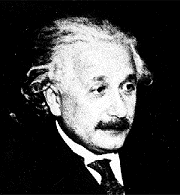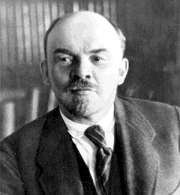1910 – 1919 World History
 Albert Einstein (1879–1955) AIP Niels Bohr Library  Vladimir Lenin (1870–1924) Novosti Photos  Woodrow Wilson (1856–1924) The Library of Congress Picture Collection |
- 1910
- Boy Scouts of America incorporated. Angel Island, in San Francisco Bay, becomes immigration center for Asians entering U.S.
- 1911
- First use of aircraft as offensive weapon in Turkish-Italian War. Italy defeats Turks and annexes Tripoli and Libya. Chinese Republic proclaimed after revolution overthrows Manchu dynasty. Sun Yat-sen named president. Mexican Revolution: Porfirio Diaz, president since 1877, replaced by Francisco Madero. Triangle Shirtwaist Company fire in New York; 146 killed. Amundsen reaches South Pole. Ernest Rutherford discovers the structure of the atom. Richard Strauss's Der Rosenkavalier. Irving Berlin's Alexander's Ragtime Band.
- 1912
- Balkan Wars (1912–1913) resulting from territorial disputes: Turkey defeated by alliance of Bulgaria, Serbia, Greece, and Montenegro; London peace treaty (1913) partitions most of European Turkey among the victors. In second war (1913), Bulgaria attacks Serbia and Greece and is defeated after Romania intervenes and Turks recapture Adrianople. Titanic sinks on maiden voyage; over 1,500 drown. New Mexico and Arizona admitted as states.
- 1913
- Suffragists demonstrate in London. Garment workers strike in New York and Boston; win pay raise and shorter hours. Henry Ford develops first moving assembly line. 16th Amendment (income tax) and 17th (popular election of U.S. senators) adopted. Bill creating U.S. Federal Reserve System becomes law. Stravinsky's The Rite of Spring. Woodrow Wilson becomes 28th U.S. president. Armory Show introduces modern art to U.S.; Duchamp's Nude Descending a Staircase shocks public.
- 1914
- World War I begins: Austrian Archduke Francis Ferdinand and wife Sophie are assassinated; Austria declares war on Serbia, Germany on Russia and France, Britain on Germany. (For detailed chronology see, World War I.) Panama Canal officially opened. Congress sets up Federal Trade Commission, passes Clayton Antitrust Act. U.S. Marines occupy Veracruz, Mexico, intervening in civil war to protect American interests.
- 1915
- Lusitania sunk by German submarine. Second Battle of Ypres. U.S. banks lend $500 million to France and Britain. Genocide of estimated 600,000 to 1 million Armenians by Turkish soldiers. D. W. Griffith's film Birth of a Nation. Albert Einstein's General Theory of Relativity.
- 1916
- Congress expands armed forces. Battle of Verdun. Battle of the Somme. Tom Mooney arrested for San Francisco bombing (pardoned in 1939). Pershing fails in raid into Mexico in quest of rebel Pancho Villa. U.S. buys Virgin Islands from Denmark for $25 million. President Wilson re-elected with “he kept us out of war” slogan. “Black Tom” explosion at munitions dock in Jersey City, N.J., $40,000,000 damages; traced to German saboteurs. Margaret Sanger opens first birth control clinic. Easter Rebellion in Ireland put down by British troops. Jeannette Rankin becomes first woman elected to Congress.
- 1917
- First U.S. combat troops in France as U.S. declares war on Germany (April 6). Third Battle of Ypres. Russian Revolution of 1917—climax of long unrest under czars. February Revolution—Nicholas II forced to abdicate, liberal government created. Kerensky becomes prime minister and forms provisional government (July). In October Revolution, Bolsheviks seize power in armed coup d'état led by Lenin and Trotsky. Kerensky flees. Balfour Declaration promises Jewish homeland in Palestine. U.S. declares war on Austria-Hungary (Dec. 7). Armistice between new Russian Bolshevik government and Germans (Dec. 15). Sigmund Freud's Introduction to Psychoanalysis.
- 1918
- Russian revolutionaries execute the former czar and his family. Russian Civil War between Reds (Bolsheviks) and Whites (anti-Bolsheviks); Reds win in 1920. Allied troops (U.S., British, French) intervene (March); leave in 1919. Second Battle of the Marne (July–Aug.) German Kaiser abdicates (Nov.); hostilities cease on the Western Front. Japanese hold Vladivostok until 1922. Worldwide influenza epidemic strikes; by 1920, nearly 20 million are dead. In U.S. alone, 500,000 perish.
- 1919
- Third International (Comintern) establishes Soviet control over international Communist movements. Paris peace conference. Versailles Treaty, incorporating Woodrow Wilson's draft Covenant of League of Nations, signed by Allies and Germany; rejected by U.S. Senate. Congress formally ends war in 1921. 18th (Prohibition) Amendment adopted. Alcock and Brown make first trans-Atlantic nonstop flight. Mahatma Gandhi initiates satyagraha (“truth force”) campaigns, beginning his nonviolent resistance movement against British rule in India.
| 1900 – 1909 World History | 1900–1999 (A.D.) World History | 1920 – 1929 World History |







